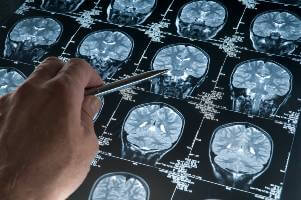Compensation for Chronic Pain Caused by a Minneapolis Car Crash
 Many car crash injuries will heal in a matter of weeks or months, with few lingering symptoms. Unfortunately, some victims experience pain for months or years after their injury occurred. This is known as chronic pain, and it can dramatically impact your quality of life.
Many car crash injuries will heal in a matter of weeks or months, with few lingering symptoms. Unfortunately, some victims experience pain for months or years after their injury occurred. This is known as chronic pain, and it can dramatically impact your quality of life.
At TSR Injury Law, we recognize the profound impact that chronic pain can have on the lives of crash victims. Below, we explain what victims need to know about including chronic pain in a compensation claim.
Our licensed Minneapolis car accident lawyers have recovered compensation on behalf of many people who suffered life-altering injuries. If you were injured in a crash in Minneapolis or elsewhere in Minnesota, we may be able to help you. We charge no upfront fees.
More than $1 billion recovered. Call TSR for legal assistance: (612) TSR-TIME.
Car Crash Injuries That Often Cause Chronic Pain
Some injuries heal with time, but others can cause persistent pain for months or even years after the collision. These are some of the more common car crash injuries that may result in chronic pain:
- Whiplash: This is a severe strain of the soft tissues in the neck. It is caused by sudden rapid back-and-forth movement of the head and neck, which often happens during a collision. Whiplash can cause chronic neck and shoulder pain, stiffness and headaches.
- Herniated discs and back pain: Discs in the spine may bulge or rupture due to the force of a collision, causing the discs to press on spinal nerves or spinal cord. This type of disc injury in the spine can cause ongoing neck and back pain, numbness and weakness.
- Traumatic brain injuries (TBIs): Concussions and other brain injuries can cause chronic headaches and cognitive or emotional problems. Brain damage from a collision could also trigger migraine headaches, which can be incredibly painful.
- Knee injuries: The force of a car crash has the potential to tear the cartilage in your knee, causing swelling, pain and trouble walking. Instability in the joint often leads to chronic pain and a higher potential for osteoarthritis.
Shoulder Injuries, like rotator cuff tears: The rotator cuff can be torn during a car crash, causing severe shoulder pain and reduced range of motion. This injury often requires surgery and can result in long-term discomfort and functional limitations.
Symptoms That Come With Chronic Pain
Unfortunately, pain is often just one symptom that comes with a severe car crash injury. People who experience chronic pain often experience additional symptoms, such as:
- Aching, burning or shooting pain: Chronic pain can manifest itself in various ways. Some individuals may experience aching pain, while others experience burning pain. Still others may experience a combination of both these types of pain. Unfortunately, chronic pain may not go away with any of the typical pain management methods.
- Stiffness and discomfort: You may have limited mobility in the affected area, along with stiffness that limits your daily activities.
- Fatigue: Chronic fatigue is physically draining. The fatigue can be so severe and overwhelming that some people struggle with simple tasks.
- Trouble sleeping: You may struggle to fall asleep or stay asleep because you are so uncomfortable. This contributes to continual fatigue, which in turn can make the pain worse.
- Emotional impact: Chronic pain often results in poor mental health, as victims may experience anxiety, depression and/or irritability.
- Trouble concentrating: Chronic pain makes it hard to concentrate, which is distracting and makes it harder for victims to engage in the same activities they used to do. This includes duties they performed at work, as well as activities they enjoyed in their personal lives.
How Can Patients Manage Chronic Pain?
People who have chronic pain often use various strategies to manage it. This may include pain medication and anti-inflammatory medications, along with physical therapy, a pain management program with injections, mental health counseling and possibly massages or acupuncture.
Each injury is different, so crash victims must work closely with their doctors to develop a plan that is tailored to their needs.
Can Minnesota Crash Victims Include Chronic Pain in a No-Fault Claim?
Minnesota’s no-fault insurance system allows crash victims to get immediate coverage of medical expenses and lost wages, regardless of who caused the crash. This includes coverage for things like:
- Surgery
- Rehabilitation
- Hospital stays
- Transportation to the hospital
- Physical therapy
- Chiropractic care
- Steroid, lidocaine, or Botox injections
- And more
If your chronic pain results in doctors prescribing medication or physical therapy, those bills may be covered by the personal injury protection (PIP) plan in your own insurance policy. However, your PIP insurance may not cover ongoing medical costs, especially if those costs exceed the limits of your coverage.
Your PIP coverage also will not cover pain and suffering, as it is a form of non-economic compensation.
What About a Lawsuit?
One of the main differences between a no-fault state like Minnesota and a fault-based state is that there are additional restrictions on your ability to file a car crash lawsuit in Minnesota. State law says you cannot recover for pain and suffering for a car crash injury unless your case fits one of five criteria:
- You incur more than $4,000 in medical treatment
- You have a permanent injury
- You sustain 60 days with a disability
- The victim of the crash died
- There is permanent disfigurement
If your case meets one of these criteria, you may be able to file a lawsuit against the at-fault driver’s insurance policy. If eligible, you can seek compensation for various damages that are not available in a no-fault claim, such as:
- Pain and suffering
- Loss of enjoyment of life
- Lost earning capacity
- Emotional distress
In short, you may be able to seek compensation for chronic pain from a car crash, but there are many factors to consider. That is why it is vital that you speak to an experienced lawyer about securing full compensation for your damages.
Contact TSR Injury Law After Getting Injured in a Collision
We are dedicated to securing the maximum compensation for our clients to support their recovery and manage the ongoing impact of chronic pain. If you or a loved one are dealing with chronic pain following a car crash, do not hesitate to reach out to us.
Complete a free case evaluation form or call us at (612) TSR-TIME.


 Many car crash victims initially feel soreness and fatigue. While soreness may take weeks or months to dissipate, fatigue usually resolves itself within a couple of days.
Many car crash victims initially feel soreness and fatigue. While soreness may take weeks or months to dissipate, fatigue usually resolves itself within a couple of days. Sometimes crash victims do not remember much of anything about their crash. Sometimes this is because they suffered a traumatic brain injury that has created gaps in their memory.
Sometimes crash victims do not remember much of anything about their crash. Sometimes this is because they suffered a traumatic brain injury that has created gaps in their memory.